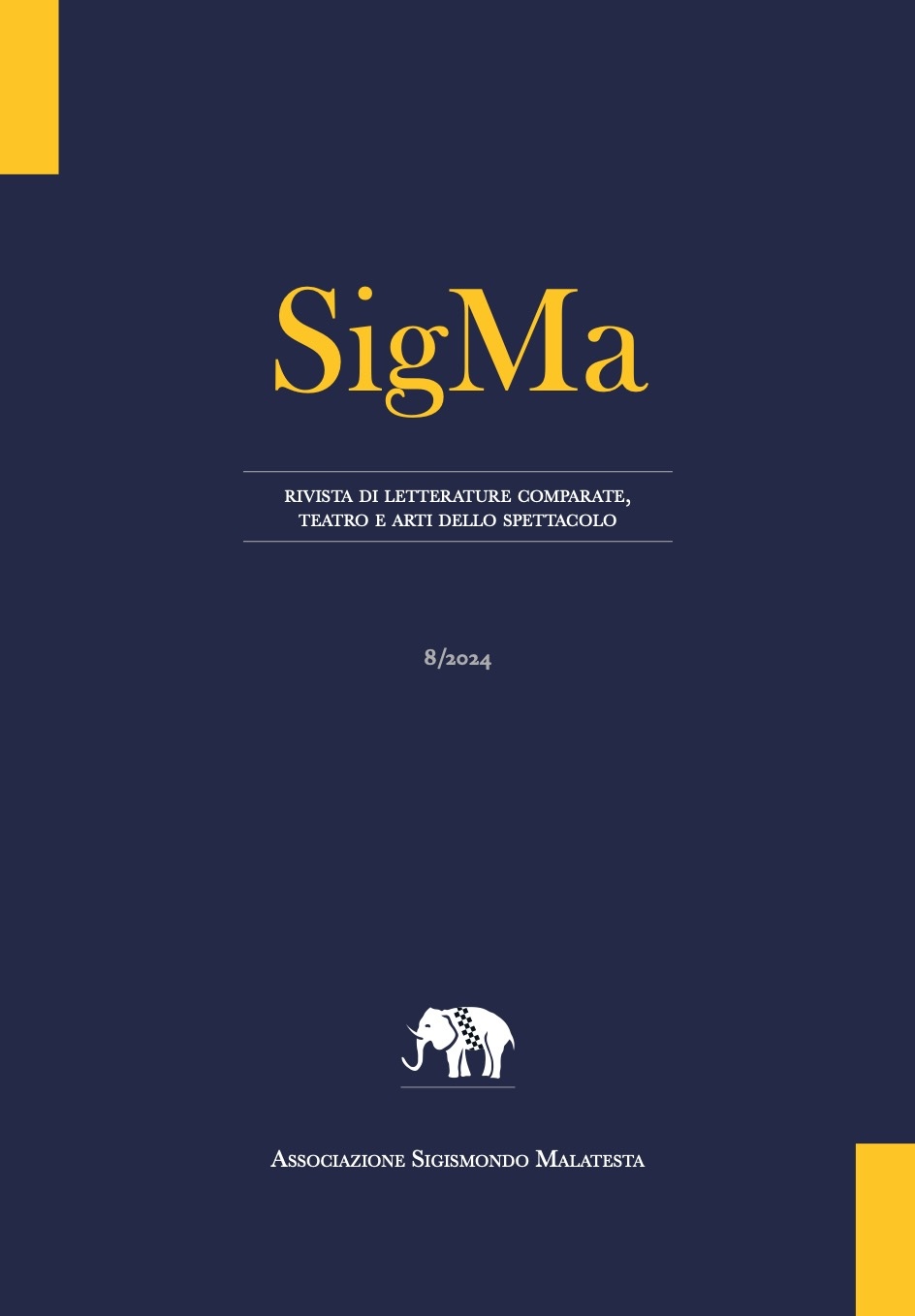“Le cœur absolu” de Philippe Sollers, entre Dante et Debord
Abstract
Par l’analyse du roman Le Cœur Absolu (1987) de Philippe Sollers, dont la composition apparaît emblématique de l’œuvre romanesque post-1983 de l’auteur, l’article illustre comment la rencontre-réécriture de deux auteurs, Dante et Debord, est au fondement de la seconde manière sollersienne. Du reste, dès 1965, Sollers avait écrit l’essai fondateur Dante et la traversée de l’écriture, essai plusieurs fois réédité à preuve de l’importance du poète florentin dans son œuvre. Cette seconde manière sollersienne se caractérise par ce que nous avons nommé esthétique de la surface, à savoir le processus par lequel, grâce à une écriture romanesque autofictionnelle, la surface vide de la société du spectacle se trouve traversée, renversée et subvertie par le surgissement de la surface pleine du texte. L’opposition entre la platitude de l’image spectaculaire et la profondeur de la surface de la page écrite s’avère donc centrale pour comprendre l’œuvre romanesque post-1983 de Philippe Sollers. Par-delà l’accusation maintes fois réitérée par la critique d’une trahison de ses précédentes valeurs après le virage stylistique opéré par Femmes, on relève donc la cohérence des deux principales phases de l’écriture sollersienne.
Downloads
Copyright (c) 2024 Ada Tosatti

This work is licensed under a Creative Commons Attribution 4.0 International License.
SigMa pubblica in internet, ad accesso aperto, con licenza:
|
|
CCPL Creative Commons Attribuzione |
L'autore conserva il copyright sul suo contributo, consentendo tuttavia a chiunque "di riprodurre, distribuire, comunicare al pubblico, esporre in pubblico, rappresentare, eseguire e recitare l'opera", purché siano correttamente citati l'autore e il titolo della rivista. L’autore, al momento della proposta di pubblicazione, è inoltre tenuto a dichiarare che il contenuto e l’organizzazione dell’opera è originale e non compromette in alcun modo i diritti di terzi, né gli obblighi connessi alla salvaguardia di diritti morali ed economici di altri autori o di altri aventi diritto, sia per testi, immagini, foto, tabelle, sia per altre parti di cui il contributo può essere composto. L’autore dichiara altresì di essere a conoscenza delle sanzioni previste dal codice penale e dalle leggi speciali per l’ipotesi di falsità in atti ed uso di atti falsi, e che pertanto Reti Medievali è esente da qualsiasi responsabilità di qualsivoglia natura, civile, amministrativa o penale, e sarà dall'autore tenuta indenne da qualsiasi richiesta o rivendicazione da parte di terzi.

